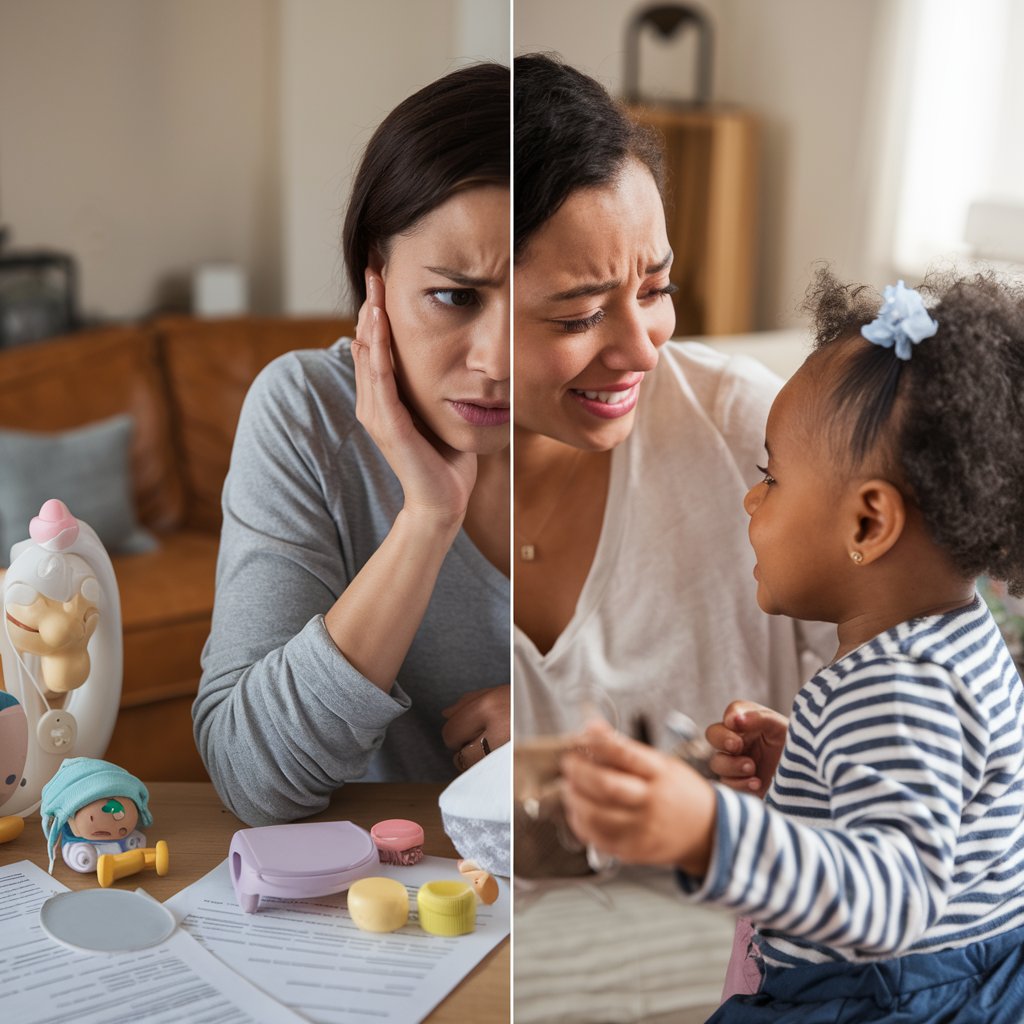Antenatal and Postnatal Depression – Stephanie’s Story
In my first pregnancy, I experienced postnatal depression; it began after my first baby was born, so when it came time to consider having another child, I felt a bit anxious. I was aware of what might occur after the birth, but I didn’t anticipate it to arise during pregnancy.
Around 24 weeks into my pregnancy, while I was still working as a family physician, I started to feel increasingly overwhelmed. Stress began to spiral in a way that it typically wouldn’t for me. I found myself becoming more anxious, bringing work concerns home and worrying about them. Sleep became elusive, and I’d wake up every day with that dreadful sense of doom creeping in.
“I’d cry at the slightest thing that wouldn’t normally make me cry.”
It was an intense feeling of doom, like a cloud hovering over my head, mixed with severe anxiety.
That’s when I realized it had struck early. I understood that I needed to take time off work, which is something I rarely do. I was already on medication, having started antidepressants at the beginning of my pregnancy, so it was a shock to experience this level of distress.
At home, I became more irritable and wanted nothing more than to hide under the covers. Caring for my eldest daughter, who was six at the time, became a challenge as I didn’t have much emotional energy left to give.
My husband, who is also a physician, recognized what was happening as I began to decline. Not all doctors are aware of these issues, unfortunately, as many women have shared with me, but he knew what was going on, and we had discussed it before I got pregnant.
In the end, I took about two weeks off. My employer was incredibly supportive. I visited my own doctor, who then referred me to the local perinatal psychiatry team. They understood that things might escalate as my pregnancy progressed, so it was an excellent time to get me connected with the system early.

We increased my antidepressant dosage and monitored my progress. Fortunately, after a couple of weeks, things improved. I also started seeing a lovely massage therapist who helped me feel better during this challenging time. I tried to prioritize self-care, indulging in simple pleasures like getting my nails done, enjoying massages, and ensuring I got enough rest.
The key factor in my recovery was understanding what was happening to me. Knowing that the medication would help me start feeling better soon was reassuring. Taking time off and allowing myself space to process my thoughts and reduce anxiety was incredibly beneficial.
Alice was born via emergency C-section. It turned out she was wrapped in her cord five times. When they handed her to me, I felt nervous because of my previous experience.
After my first daughter was born, I had felt wrong, as if I just wanted to return her to where she came from and pretend none of it happened. I was anxious about this moment, but thankfully, we had a nice cuddle, and it wasn’t as bad as I feared. I wasn’t overwhelmed in the dramatic way that’s often depicted in films; instead, I felt okay at that moment.
I returned home on the third or fourth day, and the moment I walked into the house, I burst into tears. I thought, “Oh, here we go again.” I felt the same wave of anxiety, the belief that I had made a terrible mistake, and the fear that I wouldn’t be able to handle this. There was nothing pleasant about bringing Alice home.
It felt like being hit by a freight train. This time, my mom and stepdad were there to help, and a close friend recommended an old-fashioned approach: not doing too much after giving birth. Many women rush to the supermarket, but I chose to stay in bed as much as possible. I didn’t want to engage with the outside world, so I didn’t pressure myself to do so like I might have in the past. I spent most of my time in the bedroom with Alice, allowing her to be brought to me or taken away if I didn’t want to be with her.
I was on a tumultuous emotional rollercoaster. Breastfeeding exacerbated my feelings, but I wanted to give it another try, so I did. Fortunately, my husband stepped up and took on most responsibilities, which I was grateful for. We had discussed this arrangement before Alice was born.
To be honest, things didn’t start to improve for about four months. I saw the perinatal psychiatry team frequently, and a special nurse visited our home regularly.

I was on medication and closely monitored because I had thoughts of self-harm. I had never felt so low before, which made me concerned about my mental state. However, by around four months, I began to notice some improvement.
I often describe recovery as layers of cling film being peeled away. You don’t realize how terrible you feel until one day it feels a bit less awful. When I’m unwell, waves of despair wash over me unexpectedly, even during mundane activities like taking a shower. Thankfully, those moments have become less frequent. Now, I find myself thinking, “Oh, today was better than yesterday.”
Read More: Life with a Newborn Baby: What Every New Parent Should Know
Irregular periods and pregnancy symptoms
Alice is now three years old, and I find joy in being a mother more than I did at first. I’ve come to accept that motherhood can be quite challenging. I once believed it would come naturally, but that hasn’t been the case for me. My mood still fluctuates, and there are times when I require extra support, but I’m capable of leading a fulfilling life. I work, feel happy, and enjoy things, all while remaining aware that my mental health is still a factor to consider.
My advice for anyone experiencing similar feelings during pregnancy is to speak up. Don’t feel ashamed. Don’t think it means you’re failing as a mother—reach out for help. Talk to a midwife or a physician. If the first person you approach doesn’t respond in a way that meets your needs, keep searching until you find someone who can help.
“Don’t be discouraged if your first attempt at sharing your feelings isn’t met with a positive response.”
Read More: Your Questions All About Postpartum Period Answered
Understanding Your Baby’s Outie Belly Button: A Comprehensive Guide











3 thoughts on “Antenatal and Postnatal Depression”